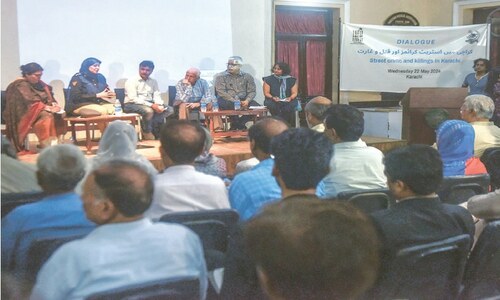A proverb is wisdom packed in a brief and crisp sentence. Born of words of the wise, a proverb not only proffers advice based on experience but it also reflects the linguistic, cultural and social milieu in which it is born.
Urdu has a very rich and varied collection of proverbs and unlike English dictionaries Urdu proverbs are an integral part of Urdu dictionaries. But they all cannot be accommodated in a general dictionary, so a special dictionary consisting only of proverbs is often needed.
Here is a brief intro to Urdu dictionaries of proverbs:
Khazeenat-ul-Amsaal
This is the first dictionary of proverbs ever written in Urdu. Though committed to writing in 1215 H/1800-01 AD by Shah Hussain Haqeeqat (1772-1833), it could not see the light of day till 1270 H/1853 when Matba-i-Mustafai, Lucknow, published it. It is a compilation of Urdu, Persian and Arabic proverbs. Its second edition, published by Naval Kishor, Lucknow, in 1872, was reproduced by National Language Authority (now Idara-i-Farogh-i-Qaumi Zaban, or IFQZ), Islamabad, in 1986.
Najm-ul-Amsaal
Compiled by Moulvi Mohammad Najmuddin Dehlvi and first published from Lahore in 1876, it listed about 4,000 Urdu proverbs. Its second edition appeared in 1888. Its fourth edition, published in 1925, is still available in some libraries.
A Dictionary of Hindustani Proverbs
Renowned orientalist S.W. Fallon had compiled it but he died in 1880 and it was published in 1884 after R.C. Temple and Lala Faqeer Chand edited and revised it. The second edition appeared two years later. There are about 12,000 proverbs including those from Urdu, Punjabi, Bhojpuri and Marwari. The entries, composed in Roman script, are explained in English. What makes it more authentic is that during the collection of data, Fallon and several of his Indian assistants travelled far and wide and interviewed common people to collect peculiar proverbs of their areas.
Mehboob-ul-Amsaal
Compiled by Munshi Mehboob Alam and first published in 1887 from Lahore, the book offers Urdu proverbs and their equivalent or synonymous expressions in English, Arabic, Persian and Punjabi. Its second edition appeared in 1902 and the third one in 1936. It lists about 700 proverbs.
Asia Aur Europe Ki Zarbul masalen
This 67-page strange book gives Urdu translations of hundreds of proverbs used in several Asian and European languages, including Chinese, Japanese, Malay, Bengali, Kashmiri, Punjabi, Pashto, Italian, English, French, Russian, Arabic, Persian, Portuguese, Spanish and some other languages. Its third edition was published in Lahore in 1903.
Ganjeena-i-Amsaal
A slim volume consisting of 46 pages, it only enlists about 1,000 Urdu and Persian proverbs, without any explanation whatsoever. Raja Rajeshwar Rao Asghar, a raja of a princely state and a known lover of dictionaries compiled it and published it in 1321 H/1903-4 AD. Raja had also compiled a 55-volume Urdu-Urdu dictionary that remains unpublished and is preserved at Karachi University’s Dr Mahmood Hussain Library. For details: https://www.dawn.com/news/1276056
Muhavraat-i-Hindustan
The full title is Mulk Ki Zaban Almaaroof bah Muhavraat-i-Hindustan. Compiled by Muneeer Lukhnavi and published in 1924 from Kanpur, it lists and briefly explains about 4,000 Urdu proverbs.
Farhang-i-Amsaal
A scholarly work by Prof Masood Hasan Rizvi Adeeb, the book is a compilation of Arabic and Persian proverbs and couplets that are used in Urdu and their widespread usage has rendered them a proverb-like status in Urdu. There are about 1,250 such entries, translated and explained in Urdu. It was first published in 1937 and the third edition appeared in 1958.
Qisa Talab Zarb-ul-Amsaal
Published in 1938 by Maktaba-i-Jamia, Delhi, the book describes the stories associated with Urdu proverbs. Khwaja Mohammad Abdul Majeed Dehlvi compiled it and it has about 80 such stories with proverbs.
Khazeenat-ul-amsaal
Compiled by Jalaluddin Ahmed Jafri, it has over 2,000 Urdu proverbs. Published by Matba-i-Anwaar-i-Ahmedi, Allahabad, it does not mention the year of publication but seems to have been published in pre-independence era.
Jaam’e-ul-Amsaal
This is the most comprehensive and one of the most authentic works on Urdu proverbs. The 424-page, large-size book contains about 10,000 Urdu proverbs with brief explanations. Compiled by Waris Sarhandi and revised by Shan-ul-Haq Haqqee, the book was published by National Language Authority in 1986.
Muraqqa-i-Aqwaal-o-Amsaal
Yet another strange work on proverbs, this book by Syed Yousuf Bukhari Dehlvi is a collection of proverbs and popular sayings in Urdu, Sindhi, Punjabi, Pashto, Persian and Arabic. The large-size, 1,000-page book was published by Anjuman Taraqqi-i-Urdu in 1994 and a second edition was published a couple of years ago.
New arrivals
Regrettably, the collections of Urdu proverbs published in the last few decades are mostly based on the previous works and without any proper research or references. They, therefore, do not merit a mention here. Most of them are commercial ventures aimed at luring students. Many of them cannot tell an idiom from a proverb but claim to have captured both. Some have even the courage to claim to have written a book which is “first of its kind in Urdu”, conveniently forgetting the 200-year-old history. It reminds one of Urdu proverb ‘Anari ka sona barah baant’, or, all his geese are swans!
Published in Dawn, January 15th, 2019














































Dear visitor, the comments section is undergoing an overhaul and will return soon.